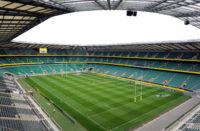UK punters are completely exempt from paying taxes on their betting winnings. So you can profit as much as possible from wagering without paying charges.
This begs the question: Who pays all the gambling taxes in the UK? Is it professional players or operators?
Our seasoned guest post writer reveals everything you need about UK gambling taxes and laws.
Declaration and Taxation of Gambling Winnings in the United Kingdom
According to HMRC, the proceeds from betting are not taxable. Therefore, Brits do not need to declare staking gains in their tax return.
Is Gambling Taxable In The United Kingdom?
Betting winnings is subject to impositions in Britain. Operators pay different duties when UK customers place their bets.
Here are some of the levies HMRC may take from companies that operate in the iGaming industry in the UK:
| Gambling Duties | Rates |
| Bingo Duty | 15% |
| Gaming Duty | 15-50% |
| Lottery Duty | 10% |
| General Betting Duty | 15% |
| Remote Gaming Duty | 21% |
| Pool Betting Duty | 15% |
Are Professional Gamblers Taxed On Their Winnings?
In Great Britain, professional players do not pay charges on winnings. However, it’s important to know that betting-related revenues are taxable.
For instance, expert bettors pay charges for money made from tournament appearances and organising gambling lessons.
So, Why Aren’t They Taxable?
Casino winnings aren’t subject to imposition in the UK because the current practice favours the government and residents. Here is how:
The British government puts a premium on players’ safety and frowns against practices that jeopardise players’ health and finances at risk. In a recent statement by UKGC chairman Andrew Rhodes: “All operators should make sure that not only do they have policies and procedures aimed at preventing harm in place, but also that staff are effectively trained to follow and implement them.”
Thus, excluding UK residents from paying commissions on their winnings encourages them to patronise British gambling companies. Agree, it’s quite nice to check out slot game reviews at Slotsjudge, choose the right casino for you, get a welcome bonus and enjoy the game knowing that you won’t have to pay tax on your winnings.
Similarly, as most residents patronise UK operators, their profits increase, increasing HMRC’s turnover.
Are Bingo Winnings Taxable?
Bingo winnings are not subject to commission in the United Kingdom. So whether you make a few quids or hundreds of thousands of dollars on high progressive jackpot bingo, your money is yours.
History of Gambling Laws
The United Kingdom Gaming and Betting Acts have evolved significantly over the years.
Here is a list of the significant laws that shaped the British iGaming space:
1960: The Betting and Gaming Act legalised wagers in the United Kingdom. Also, bettors based in the UK must pay a 9% commission on their profits while wagering in the UK.
2001: Gordon Brown proposed a budget prohibiting bettors from paying tariffs. Instead, a 15% levy was imposed on iGaming companies operating in Britain.
These made many abscond the United Kingdom and set up online operations in places with cheaper levies, such as:
- Gibraltar
- Isle of Man
- Macau, etc.
2005: A proposal to formulate a regulatory body was made. The United Kingdom Gambling Commission was formed in 2007. This body issues licenses and regulates iGaming activities in Britain.
2014: The 2014 Gaming Act levied a 15% duty on offshore operators accepting bets from British residents.
2019: Remote Gaming and other betting duties were increased to 19% and above.
While the 2019 Gambling Act has not been amended, some think tanks, like Dereck Webb, are spearheading proposals to increase gambling duties. In his statement, he says, “I’m motivated to try to change the gambling regulatory system. ” He believes high-harm products should pay more dues to the UK government. Remote gaming duties may increase to 50% if these proposals become law.
Who Exactly Pays The Tax?
IGaming tariffs are paid by businesses that offer services to UK players. These include:
- Land-based bookmakers
- High street betting shops
- Lottery shops
- Online casinos and sportsbooks
- Offshore websites accept bets from Brits.
- Off course bookmaker
- Gaming machines and software developers, etc
What If You’re A Professional Gambler?
While pro gamblers don’t pay excise on their winnings, they are not completely relieved from all obligations. For instance, professional gamblers must pay income tax (20-40%) on any interest accrued on their gambling winnings kept in a bank’s savings account.
That’s if the interest exceeds the Personal Savings Allowance (PSA) threshold of £1000 or £500 for basic and high rate taxpayers, respectively.
It doesn’t end there. Professional gamblers are also liable to pay capital gain tax (CGT) if they invest their winnings in invaluable assets and the investment yield returns.






















